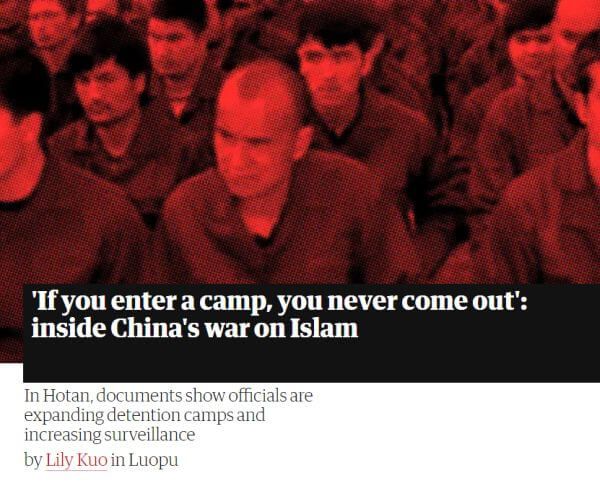Israel’s blockade of the Gaza Strip isn’t pretty. But let’s face it: Hamas hasn’t renounced violence, hasn’t accepted Israel’s right to exist, and hasn’t agreed to accept previous Israeli-Palestinian agreements. As long as the Islamists continue firing rockets and trying to smuggle weapons into the Strip via tunnels or the sea, Israel and Egypt will maintain the blockade.
The ongoing Hamas-Fatah feud further fuels Gaza’s deterioration. Mahmoud Abbas wants to cut off money, electricity and aid to the Strip and squeeze Hamas regardless of the suffering it causes ordinary Palestinians. And Hamas is pleased to persist in provoking border clashes. As long as one man’s cannon fodder is another man’s martyr, Palestinians will be too distracted to ponder the dead end Hamas has led them to. Gaza’s a rotten place to live.
There’s nothing wrong with reporting the difficulties of life in the Strip. But a dispatch in The Guardian by reporters Oliver Holmes and Hazam Balousha defies belief.

If this had been about, say, Chinese persecution of Uyghur Muslims, that would’ve been a story. The Communist authorities in the remote Xinjiang province are accused of detaining more than one million Uyghurs and other Muslims in internment camps where they face torture, forced labor, and other forms of repression. The Chinese claim they are fighting Islamic extremism and that the facilities are”boarding schools.”
It’s difficult for the foreign press to reach Xinjiang for a first-hand look. This rugged region of mountains and deserts in northwestern China is located between Mongolia and Kazakhstan, and the Chinese are heavy-handed with critical reporters. But as luck would have it, The Guardian — of all papers — managed to get an exclusive dispatch.

Xinjiang is an open-air prison.
A prison is designed to keep people in.
The blockade is designed to keep weapons out. Israel doesn’t apologize for keeping its citizens safe, or for monitoring the flow of food, medicines, construction material and other humanitarian aid into Gaza. Israel has intercepted bullets, combat gear, drones and other contraband being smuggled into the Strip.
Related reading: The Gaza Blockade: An Explainer
Memo to The Guardian: If you want to have a conversation about Gaza, tell it like it is without inflammatory headlines. And don’t try to cover your hyperbole by putting the most provocative words in quote marks. That doesn’t fly.
The Guardian’s headline is a case study for the consequences of headline writers losing all sense of proportion:
- They make it hard for people to find common ground over the Mideast conflict.
- They minimize and mock the suffering of victims of truly dire repression, such as Uyghurs.
- They are a disservice to readers, who rely on the papers to put events in a proper perspective.
- They ultimately desensitize readers to the suffering of both Palestinians and Uyghurs.
Related reading: News Literacy: Why Headlines Matter
I’m not confident The Guardian will learn any lessons from this. It’s easy for reporters like Holmes to drive to Gaza, pound the pavement, then return to Jerusalem the same day to file the same snooty stories from the comfort of home.
So unless Israel starts oppressing Uyghars, it’s hard to imagine The Guardian changing.
Featured image: via BBC News;
Before you comment on this article, please note our Comments Policy. Any comments deemed to be in breach of the policy will be removed at the editor’s discretion.

